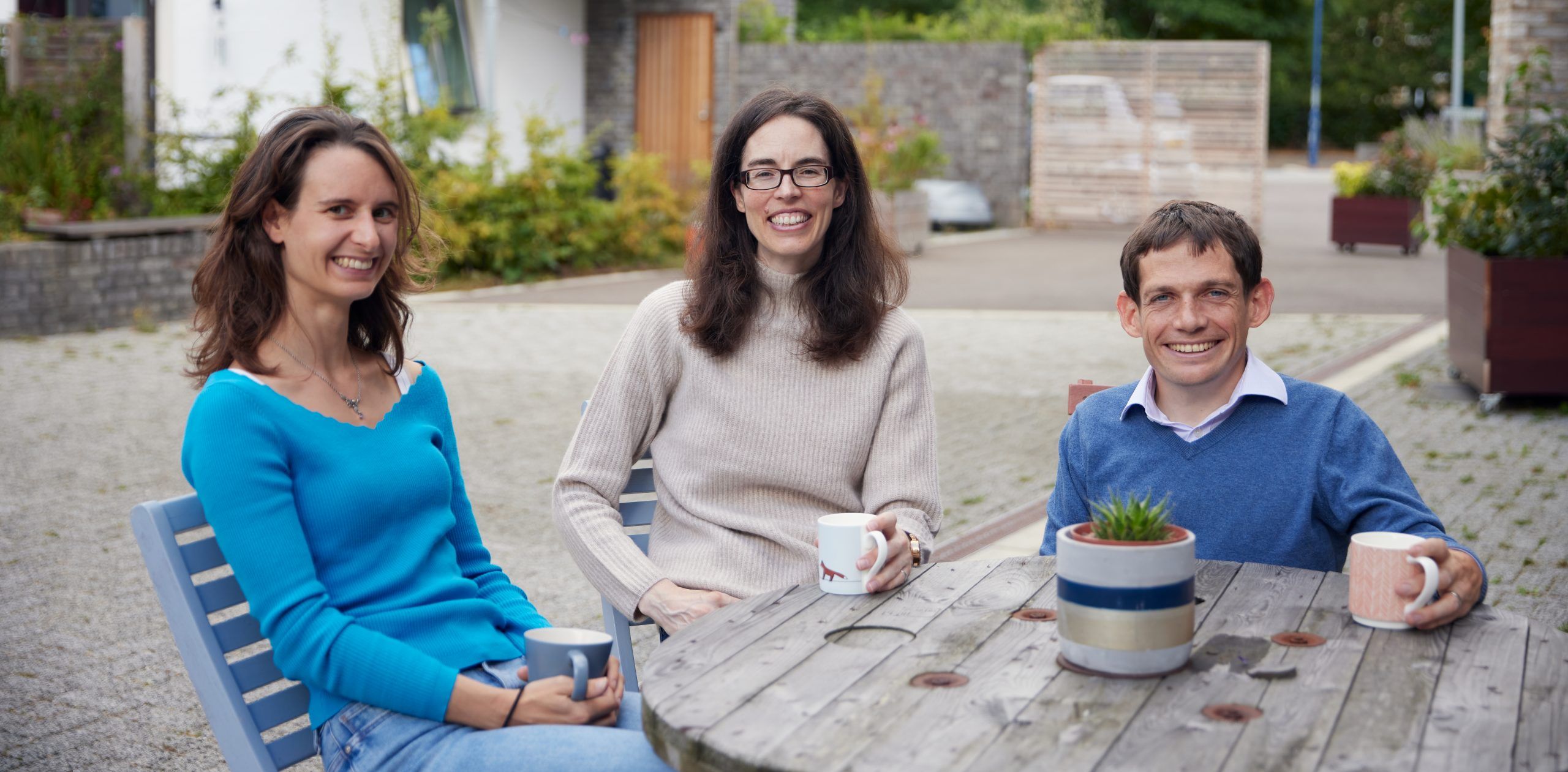-

About us
We’re a team of three functional medicine practitioners who are passionate about delving into the detailed science of health.
We are all qualified Nutritional Therapists and we each hold an additional functional medicine qualification (IFMCP).
We each came from professional careers elsewhere. We learned about functional medicine and personalised nutrition and saw their immense potential for transforming health, and we were inspired to retrain and create Cambridge Functional Medicine.
As highly-trained scientists, our aim is to provide trustworthy, research-based support.
We’d love to meet you.
Our Credentials
We each hold a MSc in Personalised Nutrition, and we are qualified Nutritional Therapists, registered with BANT and CNHC.
We are all IFM Certified Practitioners
(IFMCP).
We also each have doctorate-level scientific degrees from Oxford or Cambridge.
For more details on our individual qualifications, just check our profiles.

Alex Wilber, PhD
How we started
In my previous career as a physicist, I was involved in the development of many medical and diagnostic devices, such as blood glucose monitors for diabetes.
We decided to explore what new biological sensors might be useful for doctors. So, we obtained a list of the most significant diseases in the developed world, and started building our understanding of them.
What I learned shocked me at the time – of the 20 diseases in our list, 18 were known to be “inflammatory” diseases, meaning that they were connected to an inappropriate immune response in the body. This included diseases like heart disease, diabetes and even depression, which I would never have connected to the immune system before.
What was more, rates of all these diseases were increasing rapidly. As I dived into the scientific literature, it became clear that rates of “chronic inflammation” were known to be increasing. However, addressing this underlying inflammation was in no way a focus of mainstream health efforts.
We can think of inflammation as representing an “alarm state” in the body. When the body sees itself as under threat, it prioritises short-term defence over long-term maintenance. This is fine – unless the threat lasts for decades.
The scientific literature on the subject is, in fact, vast and relatively uncontroversial. Inflammation is known to be caused by many aspects of modern life – processed food, chronic stress, an unbalanced microbiome, and many more – and in turn is known to play a causal role in almost all of the chronic diseases that affect so many of us, including metabolic syndrome and obesity.
However, all these interactions are very individual. For one person, a diet high in processed food can lead to serious health problems, while the next may be unaffected – and the same goes for stress, sleep and all the other factors of modern life. Then, if chronic inflammation is triggered, the effects also vary hugely. One person may develop arthritis, the next heart disease; one person may be overweight while the next may struggle with their mental health. And of course, this is a simplification. Inflammation is hugely complex, and many other factors also play a role.
Addressing the root causes is clearly the answer. But because of how much things vary from person to person, a personalised approach is the only way to go. There’s no one-size-fits-all answer, and no drug is going to fix the underlying issues.
As I came to understand these connections, making a difference on this front seemed hugely more important than anything I might achieve in my work on medical devices. So, I decided to make a change.
Through incredible luck, Lydia and Stephanie were eager to make the same leap. Together, we’ve committed our careers to this new approach. Our goal is to help as many people as we can, and to spread the message as far we’re able. We hope we’ll be able to help you.

How we started
Alex Wilber, PhD
In my previous career as a physicist, I was involved in the development of many medical and diagnostic devices, such as blood glucose monitors for diabetes.
We decided to explore what new biological sensors might be useful for doctors. So, we obtained a list of the most significant diseases in the developed world, and started building our understanding of them.
What I learned shocked me at the time – of the 20 diseases in our list, 18 were known to be “inflammatory” diseases, meaning that they were connected to an inappropriate immune response in the body. This included diseases like heart disease, diabetes and even depression, which I would never have connected to the immune system before.
What was more, rates of all these diseases were increasing rapidly. As I dived into the scientific literature, it became clear that rates of “chronic inflammation” were known to be increasing. However, addressing this underlying inflammation was in no way a focus of mainstream health efforts.
We can think of inflammation as representing an “alarm state” in the body. When the body sees itself as under threat, it prioritises short-term defence over long-term maintenance. This is fine – unless the threat lasts for decades.
The scientific literature on the subject is, in fact, vast and relatively uncontroversial. Inflammation is known to be caused by many aspects of modern life – processed food, chronic stress, an unbalanced microbiome, and many more – and in turn is known to play a causal role in almost all of the chronic diseases that affect so many of us, including metabolic syndrome and obesity.
However, all these interactions are very individual. For one person, a diet high in processed food can lead to serious health problems, while the next may be unaffected – and the same goes for stress, sleep and all the other factors of modern life. Then, if chronic inflammation is triggered, the effects also vary hugely. One person may develop arthritis, the next heart disease; one person may be overweight while the next may struggle with their mental health. And of course, this is a simplification. Inflammation is hugely complex, and many other factors also play a role.
Addressing the root causes is clearly the answer. But because of how much things vary from person to person, a personalised approach is the only way to go. There’s no one-size-fits-all answer, and no drug is going to fix the underlying issues.
As I came to understand these connections, making a difference on this front seemed hugely more important than anything I might achieve in my work on medical devices. So, I decided to make a change.
Through incredible luck, Lydia and Stephanie were eager to make the same leap. Together, we’ve committed our careers to this new approach. Our goal is to help as many people as we can, and to spread the message as far we’re able. We hope we’ll be able to help you.
Work with us
If you’re interested in working with us on our Thrive programme for women with hypothyroidism, we’d love to talk to you.


